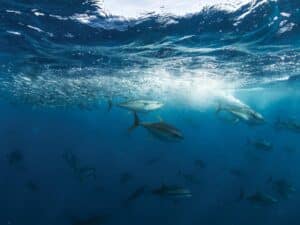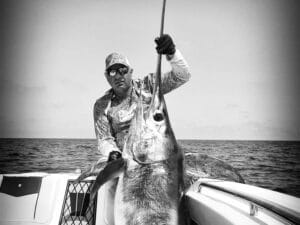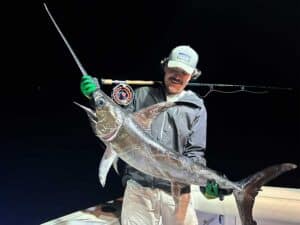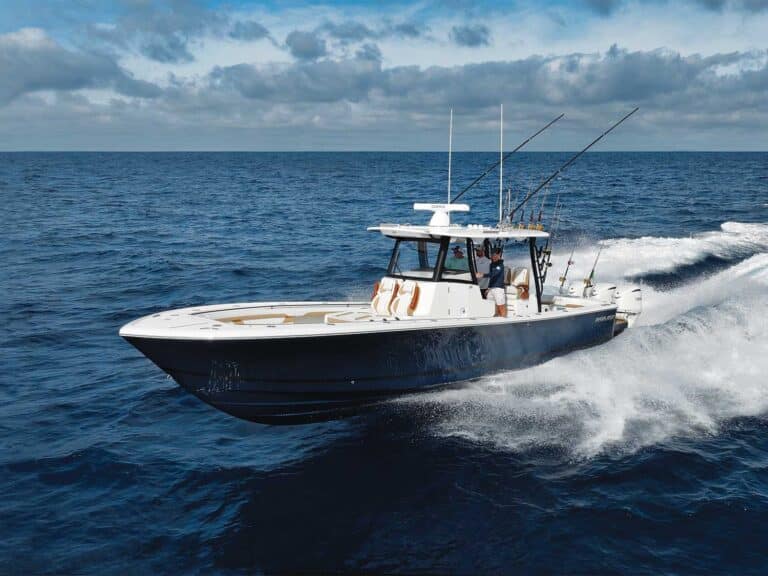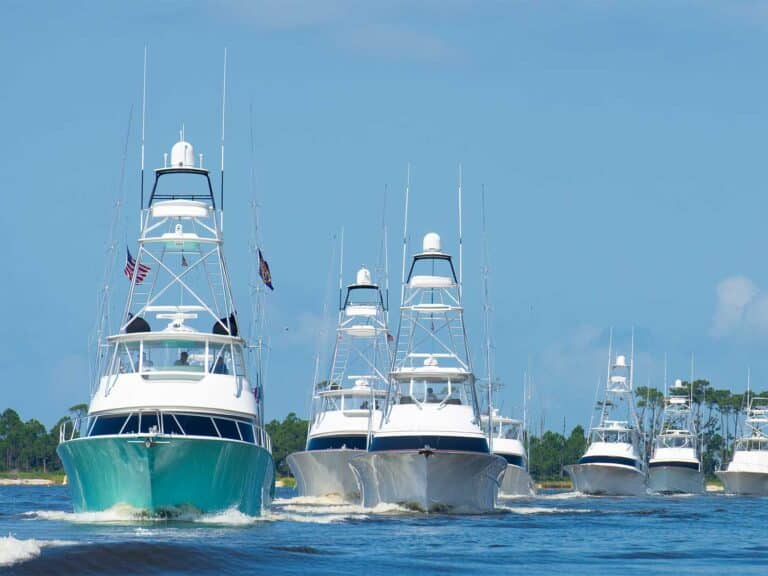
Special delivery: Sign up for the free Marlin email newsletter. Subscribe to Marlin magazine and get a year of highly collectible, keepsake editions – plus access to the digital edition and archives.
On March 13, 2024, Peter Chaibongsai and TJ Morrell from The Billfish Foundation met up with the captains and crews as well as a research team from the University of Southern Mississippi in Singer Island, Florida, to discuss logistics for an upcoming satellite tagging trip. The goal: satellite-tag Atlantic sailfish over the next two days. With few instances of Atlantic sailfish being satellite-tagged in South Florida recently, the group was excited and anxious to get on the water.
Three vessels would be heading out on this research expedition, each carrying two satellite tags to enhance the potential for tag deployment. The USM research team—Jeremy Higgs and Angie Hoover—along with Chaibongsai and Morrell—would be spread among these three vessels to provide the optimal chances for tag deployment. The first was the sport-fisher Old No. 7, which is owned by TBF board member Austin Musselman, who is also responsible for donating three of the satellite tags used in this research project. The captain of his vessel, Jamie Ralph, would be running the offshore operations along with his professional crew. The next boat was a 33-foot Valhalla, Lily, which is owned and operated by TBF supporter Mike Samuels of Teams Marine. A 39-foot SeaVee named Encore rounded out the fleet. This boat was run by Jamie Bunn, founder of the Bluewater Movements tournament series.
Despite the fact that Atlantic sailfish is Florida’s state saltwater fish, there is always more information that can be obtained from this species, especially when given the opportunity to deploy pop-up satellite tags. Compared with traditional dart-style spaghetti tags, satellite tags provide researchers with finite, real-time data and can reveal insights into sailfish behaviors. Satellite tags can offer an incredible amount of information over a short time and can be useful for projects associated with migrations, vertical movements in the water column and locational/seasonal trends. For this project, the tags would remain on the fish for periods ranging from one to 12 months before detaching from the sailfish and floating to the surface, where they would send their recorded information to scientists via a satellite link. Another unique aspect of this trip was that last year’s champion of the Bluewater Movements Sailfish Challenge, Team Remix, would have the opportunity to name the inaugural satellite tag deployed.
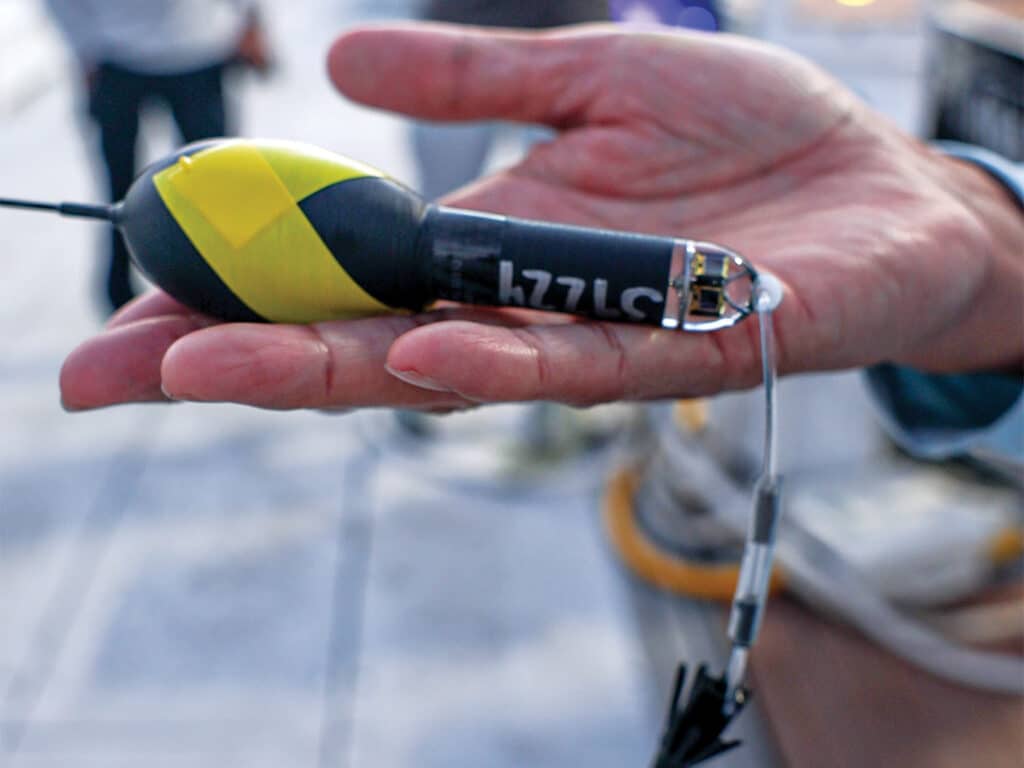
Once fishing commenced Wednesday morning, there was a quick initial bite, but the majority of the first day was fairly quiet, the boats only seeing five sailfish on the day and deploying a satellite tag on just one sailfish. Fortunately, things were more favorable on Day Two, with four satellite tags deployed between two of the vessels. By the time everyone returned to the dock at the end of the day, smiles could be seen in every direction.
From here, all involved will have to wait for the tags to successfully report and the scientists to review the data. TBF will then utilize the analysis to continue to highlight and offer insights into these incredible and valuable species, as well as provide better fishery-management policies to the region.
Read Next: Tracking the World’s Largest Sailfish.
Only through satellite tagging can some of the data gaps associated with the life history of sailfish be filled. Though much research has been, there is still a great amount of information that is unknown to us. We want to thank everyone who helped make this research trip possible, from the donation of the satellite tags to the work of the research team to the captains and crews of all the vessels that made this expedition possible. If you are interested in sponsoring or participating in a satellite-tagging expedition with The Billfish Foundation, you can do so by contacting us at [email protected].
